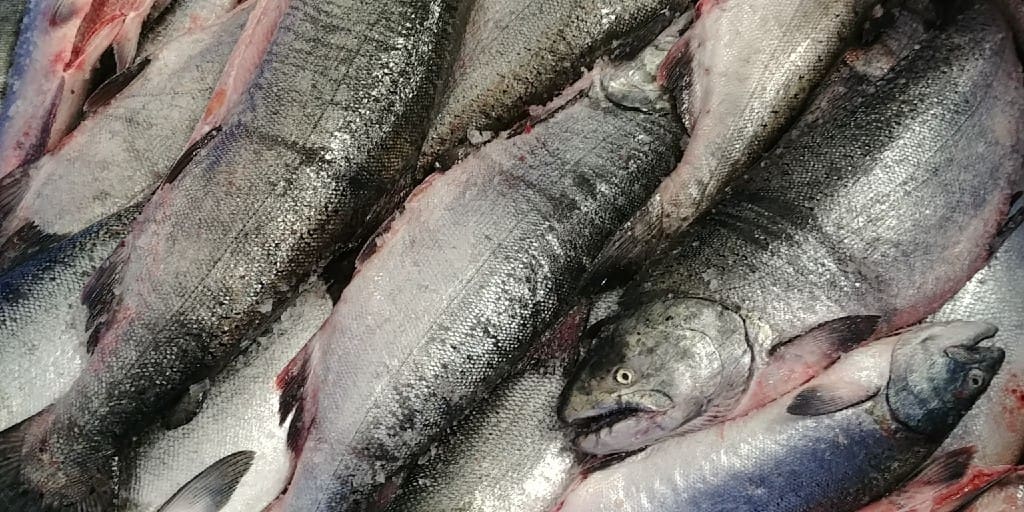Chinook Salmon And Resident Orcas
NewsYou may have seen recent articles in the news about closures to chinook salmon fishing to protect the diet of the endangered resident orca pods J, K, and L in the Salish Sea. And it may have you wondering if it’s ok to eat chinook salmon this year. Read on below!

You may have seen recent articles in the news about closures to chinook salmon fishing to protect the diet of the endangered resident orca pods J, K, and L in the Salish Sea. And it may have you wondering if it’s ok to eat chinook salmon this year? Read on below for more about the dangers our resident orca pods are facing, and why any chinook salmon we carry are not connected to endangered resident orca diets.
There are two types of orcas in the waters of BC: residents and transients. In the waters of the Salish Sea (from Puget sound through the Georgia Straight), three pods of resident orcas reside. These pods are endangered. Only 75 individuals remain, representing a 30 year low. They have been listed as endangered since 2005.
Understanding why these orcas populations are declining so sharply is challenging. This article in last week’s New York Times details the threats that our endangered orcas face and it’s no simple puzzle for governments and conservationists to unravel. Threats to these orcas are wide ranging: increased boat, ship, and tanker traffic in the Salish Sea; pollution and disease; and the disappearance of their main food source, winter chinooks, are some of the main factors that are threatening the resident orcas. The Department of Fisheries and Oceans recently announced further restrictions to chinook fisheries in the Georgia Strait to help protect the orca’s important food source.
In our 50 years of salmon fishing on the BC coast, we have never fished for chinooks in the Georgia Strait. There have always been strict restrictions on non-commercial chinook fishing in this area and we’re not even sure if there ever were commercial fisheries on the winter chinooks in the Georgia Strait.
When we do have chinook salmon available to our members, they are from areas with no resident orcas, and runs that do not migrate into the Salish Sea. We have offered chinook salmon from the west coast of Vancouver Island, the mid-coast, and the far north coast of BC. In these areas, there are no resident orcas, only transient orcas passing through who feed on large marine mammals and other prey, not salmon. The migratory routes of these chinook salmon do not come into the Salish Sea so they were never destined to be orca food. Rather, the winter chinooks that are the main food source for the endangered resident orcas live quite locally throughout the year, part of the reason why they are such an important, year-round food source for the resident whales.
Protecting endangered orcas and chinook salmon is a serious and complex challenge. Alongside environmental NGOs, scientists, researchers, and activists we advocate for sound science and robust policies to protect our iconic species. And we want you to rest assured that any chinook salmon we carry at Skipper Otto’s will never be part of the threat to our resident orcas.
Taste the Skipper Otto difference today! Dive into our unique model and how it works, and learn more about small-scale, independent fishing families.
